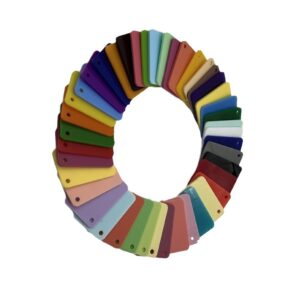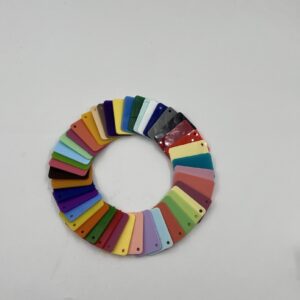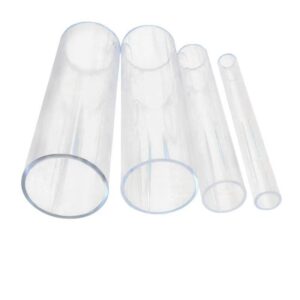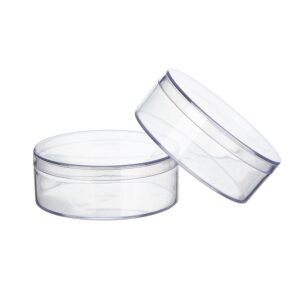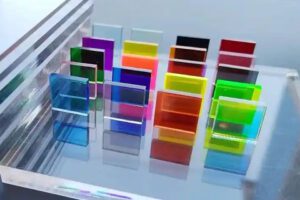Summary
Custom printed acrylic displays are innovative marketing tools that significantly enhance brand visibility in retail environments. Their unique properties, including clarity, durability, and versatility, make them highly effective for showcasing products and conveying brand messages. Retailers leverage these displays to create eye-catching focal points that attract customer attention and differentiate their offerings from competitors. As the retail landscape becomes increasingly competitive, the ability to deliver high-quality graphics and integrate interactive elements into these displays is crucial for driving customer engagement and loyalty.
Table of Contents
The prominence of acrylic displays stems from their ability to combine aesthetics with functionality. Their transparent nature allows products to be viewed clearly from multiple angles, thus increasing perceived value, particularly for intricate items like jewelry or electronics. Additionally, the durability of acrylic minimizes the risk of breakage and ensures a long-lasting solution that can withstand the demands of high-traffic retail spaces. This resilience, coupled with easy maintenance, positions acrylic displays as a cost-effective investment for retailers seeking to maintain a fresh and appealing shopping environment.
Customization plays a pivotal role in the effectiveness of acrylic displays. Retailers can tailor the design, size, and colors to align with their brand identity, ensuring that each display resonates with the target audience. The integration of technology, such as QR codes or augmented reality features, further enhances customer interaction, transforming passive displays into engaging experiences that encourage deeper consumer connections. The strategic use of data from past implementations can also guide design decisions, optimizing displays for various retail contexts.
Controversies surrounding custom printed acrylic displays often focus on sustainability concerns, as the environmental impact of acrylic production and disposal comes under scrutiny. However, advancements in manufacturing and recycling processes are addressing these issues, positioning acrylic displays as a more eco-friendly option compared to traditional materials. As retailers increasingly prioritize sustainable practices, acrylic displays are set to remain a preferred choice for enhancing brand visibility while meeting ecological standards.
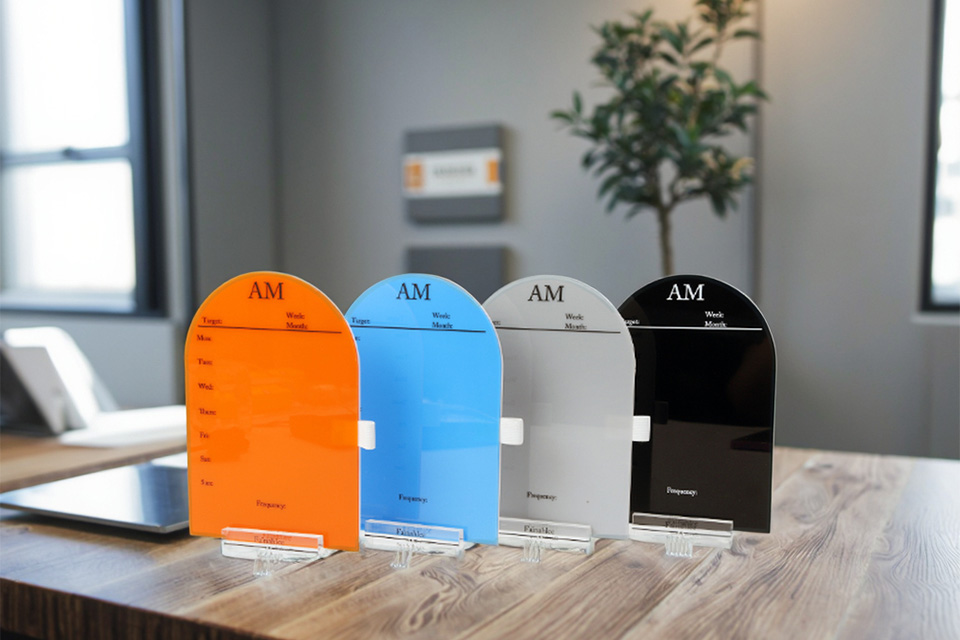
Benefits of Custom Printed Acrylic Displays
Custom printed acrylic displays offer numerous advantages that significantly enhance brand visibility in retail environments. These benefits stem from the material’s unique properties and the flexibility it provides for branding and marketing strategies.
High-Quality Graphics and Branding
Acrylic’s surface is highly conducive to various printing techniques, allowing for high-quality graphics, logos, and text to be directly applied to the material. This capability makes acrylic an excellent choice for branded displays, where retailers can prominently feature their logos and marketing messages. The ability to update promotional messages easily provides retailers with the flexibility needed for seasonal changes or new product launches, ensuring that displays remain relevant and engaging for customers.
Enhanced Product Visibility
One of the primary advantages of acrylic displays is their clarity and transparency, which allows customers to view products clearly from multiple angles. This high level of visibility is particularly beneficial for showcasing products with intricate details, such as jewelry or electronics, thereby enhancing their perceived value and attractiveness. By minimizing distractions, acrylic displays enable customers to focus solely on the products, potentially leading to increased sales.
Durability and Longevity
Acrylic is known for its durability and impact resistance, making it a practical choice for high-traffic retail settings. Unlike glass, acrylic is less likely to break or shatter, which reduces the risk of injuries and product damage. This robustness ensures that displays can withstand everyday use, providing a long-lasting solution that offers excellent value for money.
Versatile and Customizable Designs
The versatility of acrylic allows for creative and customized display solutions tailored to specific branding needs. Retailers can choose from a variety of shapes, sizes, and colors, enabling them to align displays with their brand identity and product aesthetics. Whether it is a custom-shaped display case or an intricately designed shelf, acrylic offers unparalleled flexibility, making it suitable for a wide range of products, from cosmetics to electronics.
Easy Maintenance and Eco-Friendly Option
Acrylic displays are easy to clean and maintain, which is a significant benefit for busy retail environments. The smooth surface of acrylic resists smudges and fingerprints, reducing the frequency of cleaning required to keep displays looking pristine. Additionally, acrylic sheets are recyclable and durable, which makes them an environmentally friendly choice, contributing to waste reduction over time.
Integration with Technology
As retail becomes increasingly digital, acrylic displays can be integrated with technology to enhance customer interactions. This integration can include elements like digital screens, QR codes, or augmented reality features, transforming passive product holders into engaging displays. By incorporating these interactive elements, retailers can create memorable customer experiences that encourage longer engagement and foster brand loyalty.
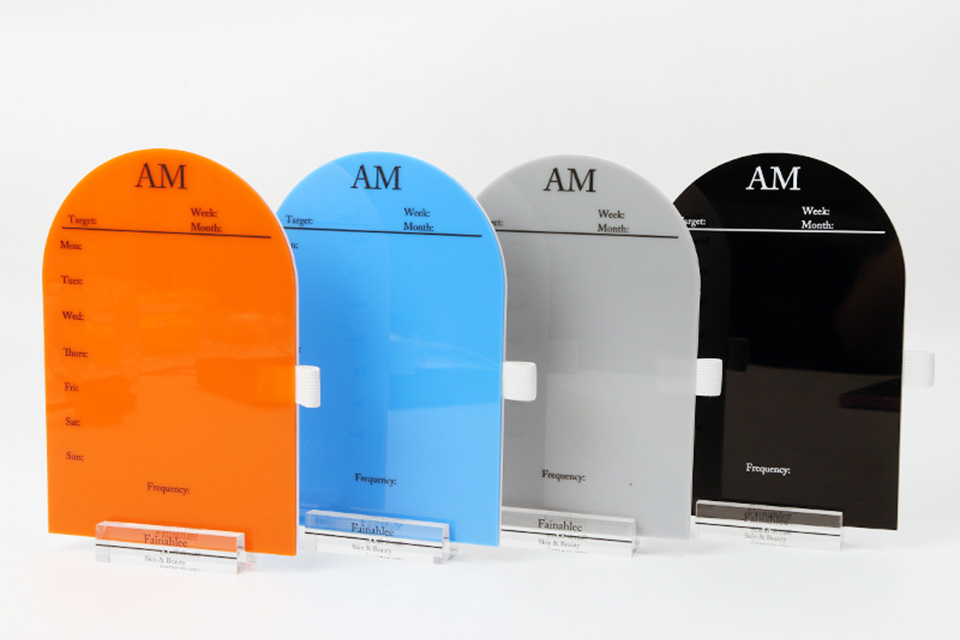
Enhancing Brand Visibility
Custom printed acrylic displays are a powerful tool for enhancing brand visibility in retail environments. They serve as eye-catching focal points that can attract customer attention and differentiate products from competitors. By utilizing unique designs, colors, and shapes, these displays can create a memorable in-store experience that reinforces brand recognition and identity.
Role of Point-of-Purchase Displays
Point-of-purchase (POP) displays act as strategic marketing tools in busy retail set- tings. They are designed to stand out and effectively communicate product benefits, promotions, or brand messages. This is akin to having a billboard within the store that not only highlights products but also captures the shopper’s eye amidst the visual clutter of other items. The disruption caused by these displays can lead to increased customer engagement, encouraging them to consider new products or revisit familiar favorites.
Customization and Interactive Features
Customization is vital for ensuring that acrylic displays resonate with the brand’s aesthetics and target audience. This includes tailoring the shape, size, and graphic elements to align with the brand’s visual identity. Additionally, incorporating interactive elements, such as QR codes or augmented reality features, can significantly enhance engagement. These elements allow customers to access digital content, such as product demonstrations or promotional videos, directly from the display, creating a dynamic shopping experience.
Importance of Design and Data
Effective design plays a critical role in the impact of custom displays. Factors such as color choice, layout, and graphics must be thoughtfully considered to communicate the brand’s message effectively. For instance, bold colors can attract attention, while clear, high-quality imagery helps convey the product’s value. Utilizing data from previous display implementations can guide the design process, ensuring that the display configurations are optimized for various retail environments and consumer behaviors.
Creating a Cohesive Brand Experience
To maximize brand visibility, it is essential that custom displays align with other marketing materials and packaging. Consistency across these platforms fosters a cohesive brand experience that builds trust and recognition among customers. Every element of the display should be designed with intentionality, from logo placement to taglines, to ensure that the display not only showcases products but also actively communicates the brand’s core values and promise. By doing so, businesses can create a strong brand identity that resonates with consumers and enhances overall visibility in the retail landscape.
Comparative Analysis
Acrylic UV printing has emerged as a powerful solution for enhancing brand visibility in retail environments, particularly when compared to traditional display methods. This section examines the key advantages of acrylic displays, focusing on aspects such as durability, cost-effectiveness, and visual appeal.
Durability and Quality
One of the most significant benefits of acrylic displays is their superior durability compared to traditional materials like cardboard and glass. Acrylic is resistant to shattering and scratches, ensuring that displays maintain their aesthetic appeal over time, which is crucial for creating a lasting impression on customers. Furthermore, the clarity of acrylic does not degrade, allowing displays to look new and inviting long after installation. This consistent quality enhances the perception of the brand and its products, making acrylic an excellent choice for high-traffic retail environments.
Cost-Effectiveness
Acrylic displays are not only durable but also offer a cost-effective solution for retailers. The lower production costs associated with acrylic, as compared to glass, allow retailers to invest in high-quality display solutions without significantly impacting their budgets. This affordability enables stores to refresh their displays more frequently, maintaining an engaging and updated store appearance that can attract more customers. Retailers can allocate savings toward other crucial areas such as marketing or inventory, optimizing their overall budget.
Visual Appeal
In terms of visual impact, acrylic displays provide a premium look that enhances product visibility and perceived value. The vibrant colors and finishes achievable with acrylic UV printing allow retailers to create eye-catching signage and displays that resonate with consumers. The ability to create bespoke designs tailored to brand identity further distinguishes acrylic displays from more generic options.
Retailers utilizing acrylic UV printing can craft unique customer experiences that stand out in a competitive market, ultimately driving customer engagement and sales.
Strategic Investment
Choosing acrylic UV printing over traditional methods is not merely a design decision but a strategic investment for retailers. The enhanced durability, cost-effectiveness, and visual appeal of acrylic displays position them as a preferred choice for businesses aiming to elevate their brand presence in the retail sector. By leveraging the unique advantages of acrylic, retailers can enhance customer experiences, foster brand loyalty, and ultimately improve their bottom line.
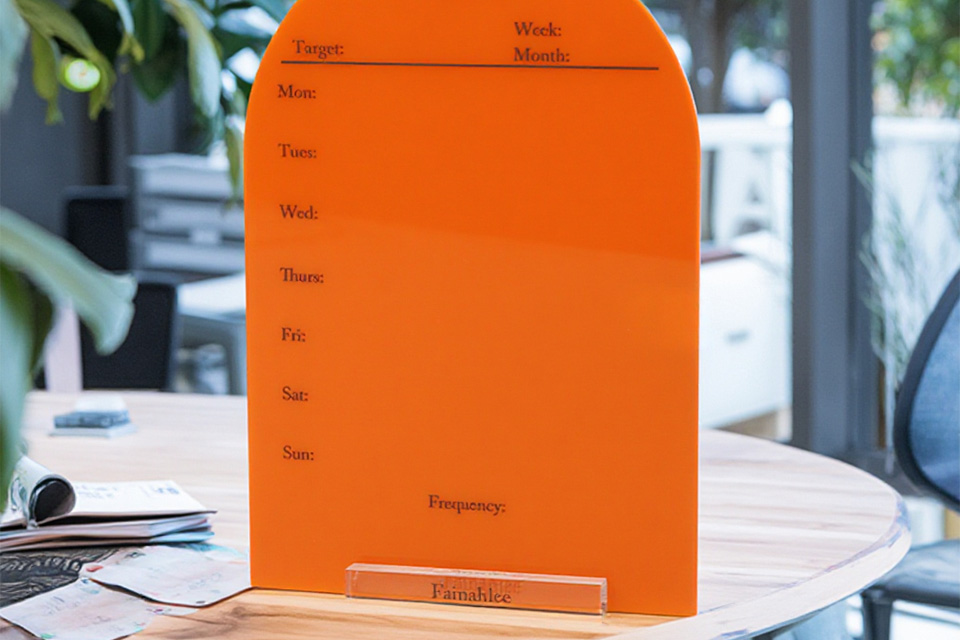
Considerations for Retailers
Retailers looking to enhance brand visibility through custom printed acrylic displays should carefully evaluate several factors that influence the effectiveness and cost of their displays. Understanding these elements can lead to a more strategic investment that resonates with customers and drives sales.
Engaging Customer Experience
In-store shopping experiences that prioritize customer engagement can greatly benefit from custom displays. Retailers can utilize interactive retail displays, self-ser- vice kiosks, and integrated technology to create memorable and immersive experiences for shoppers. These innovations allow customers to navigate through the store while being informed about the products they are interested in, making the shopping process enjoyable and convenient. The incorporation of acrylic displays can further amplify this experience by showcasing products in a visually appealing manner that attracts attention.
Cost Considerations
When investing in custom acrylic displays, understanding the components that influence pricing is crucial. The overall cost will be shaped by several factors, including materials, size, design complexity, and additional features like lighting or interactive elements. Larger and more intricate designs typically require greater resources, which can drive up costs. Retailers should evaluate their budget against these factors to ensure they are making a sound investment.
Material Selection
Choosing the right materials is essential for both aesthetics and durability. Acrylic displays provide a sleek and modern look while being lightweight and versatile. They can be designed to complement various product types, whether showcasing high-end electronics or organic products. The choice of material not only affects the visual impact but also plays a role in the display’s longevity and the overall shopping environment.
Supplier Partnerships
Selecting a reliable supplier to create custom displays is another critical consideration. Retailers should look for partners that offer a full-service design and engineering approach, ensuring a seamless experience from concept to manufacturing. An experienced partner can help retailers balance aesthetics, functionality, and budget, leading to displays that effectively showcase products and reinforce brand identity.
Measuring Success
To justify the investment in custom displays, retailers must also consider how to measure their return on investment (ROI). Tracking performance metrics across various locations can provide valuable insights into the effectiveness of the displays in driving sales and enhancing customer engagement. Collaborating with a dedicated partner can simplify this process, allowing retailers to focus on refining their strategies based on data collected from their displays.
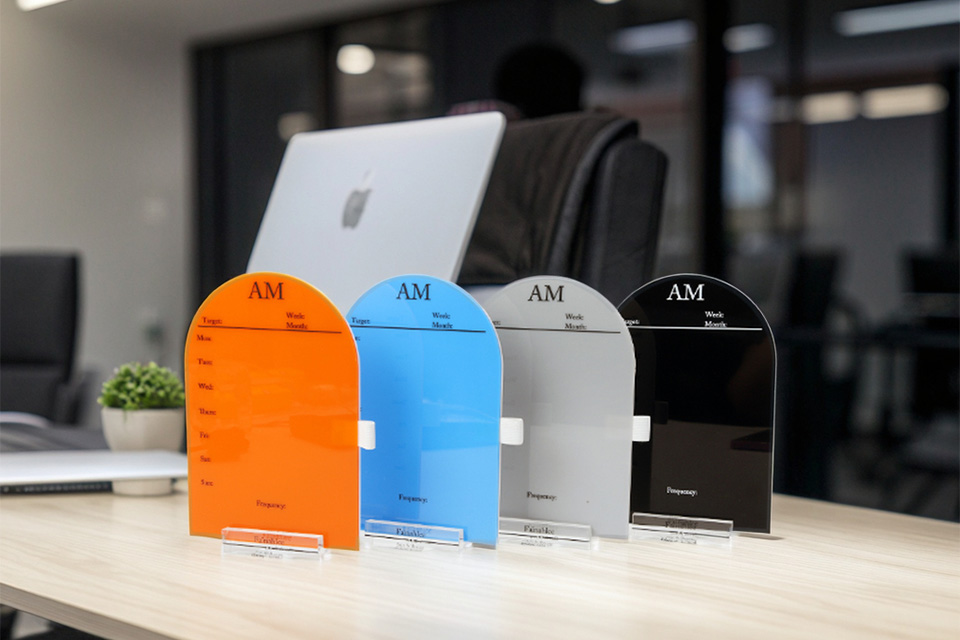
Future Trends
As consumer expectations evolve, the landscape of retail displays is undergoing significant transformation. Businesses are increasingly looking for display solutions that not only fulfill functional requirements but also resonate with their brand identity, sustainability goals, and customer engagement strategies. Materials such as acrylic, wood, cardboard, and metal are becoming integral to meeting these demands, with acrylic displays leading the way due to their versatility and aesthetic appeal.
Sustainability Considerations
Sustainability is becoming increasingly crucial in retail, and acrylic displays offer an eco-friendly alternative to traditional materials. With their recyclability and longevity, acrylic displays can significantly reduce environmental impact, aligning with the growing demand for sustainable practices among businesses and consumers alike. As the focus on sustainability intensifies, acrylic displays are likely to remain a favored choice for brands looking to enhance their visibility while also addressing ecological concerns.
Advancements in Acrylic UV Printing Technology
One of the most promising developments in the future of retail displays is the advancement of Acrylic UV Printing. This technology enhances the precision, speed, and color range of printed graphics, allowing retailers to create displays with unprecedented clarity and visual impact. As technology continues to evolve, future
UV printers are expected to offer greater efficiency and versatility, facilitating the production of complex designs that capture consumer attention more effectively.
Integration of Interactive Elements
The integration of interactive elements into acrylic displays represents another significant trend. Retail environments are becoming increasingly digital, and incorporating technologies like augmented reality (AR) with acrylic panels can enhance customer experiences by creating engaging, interactive displays. This strategy not only draws attention but also fosters a deeper connection between consumers and the brand.
Customization and Flexibility
Customization is key to successful retail displays, and acrylic’s adaptable nature allows for a variety of shapes, sizes, and designs tailored to specific branding needs. Retailers can layer different acrylic displays or utilize innovative lighting techniques to highlight focal points, ensuring that products are presented attractively and effectively. This flexibility makes acrylic displays a popular choice across diverse retail settings, from clothing stores to electronics and cosmetics outlets.





